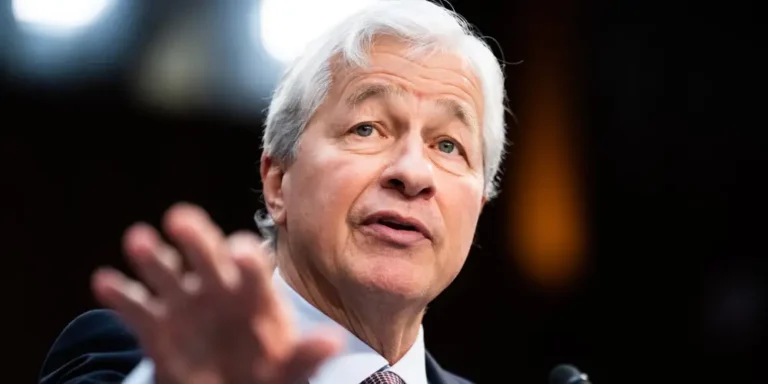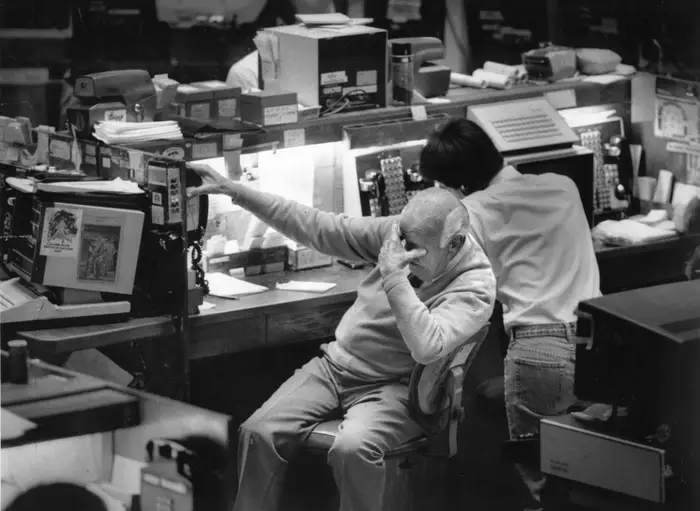How Wall Street’s notoriously competitive culture is making its youngest recruits feel lonelier than ever
Madison had no illusions about how difficult her new job would be when she arrived for her first day of work as a junior investment banker in 2022. Wall Street is known for its long hours and stressful environment, especially at the junior level, where grunt work abounds.
Madison, on the other hand, was excited to start a new job in the heart of New York City, working for a prestigious investment bank that would pay her a six-figure salary at the age of 22. Sure, she’d be grinding, but she wouldn’t be alone. Days in the trenches would be spent with other young analysts her age who shared her goals. They’d work hard and play hard, with an enviable social life, just like in every Wall Street film she’d seen. She imagined them bonding at a bar on Friday nights over a particularly grueling week or their contempt for some heinous managing director. She’d spend her summers in the Hamptons, go on group outings to exclusive nightclubs, and rub shoulders with powerful rainmakers.
While this image of Wall Street life may be true for some, it was not true for Madison. She had no idea that one year into the job, she would still have yet to form friendships with any of her coworkers, or that she would be so desperate for connection that she would resort to using a dating app to find people to hang out with.
“The biggest disappointment of banking for me was that I expected all of us analysts to be extremely close.” “I thought we’d have this really strong camaraderie and be friends for life after this,” Madison, who requested anonymity to protect her identity at work, said. “But after I walk out of this firm, I can’t say I will keep in contact with a single one.”
Loneliness is not limited to the financial sector. Isolation is so pervasive in modern American society that the US surgeon general declared it an epidemic in May. The issue is particularly acute for young people, many of whom must relocate to new cities to begin their careers. In a Cigna-commissioned survey conducted in 2021, 79% of 18- to 24-year-olds reported feeling lonely, compared to 41% of people 66 and older.
However, Wall Street employees claim that the nature of finance — office politics and a particularly competitive cohort — can create a work culture that exacerbates feelings of loneliness. And, because of the long hours, it can be difficult for young people starting out on Wall Street to find time to cultivate a life outside of work.
Two early-career investment-banking analysts, a former derivatives-trading managing director, and two mental-health professionals with financial-industry clients spoke with Business Insider about why working on Wall Street can be especially isolating, and what, if anything, can be done about it.
The competitive, cliquey culture
According to the young people Business Insider spoke with, experiences can vary — some analyst classes can be very close, depending on the group and the firm. However, they stated that it is not a guarantee.
“I go out with them on occasion. “But I wouldn’t say these people know me outside of work,” Madison said of her analyst class. “I just don’t feel a deeper connection with a lot of people.”
Jobs at top investment banks and hedge funds are often more difficult to obtain and more exclusive than admission to an Ivy League school, so those who work in them are naturally competitive. When you combine them with a culture obsessed with hierarchies and titles, you can get a toxic mix.
Madison, for example, described significant tension between her analyst class and the one above it, which began during her first year on the job.
“Late at night, they’ll do an order for bubble tea or something, and they will literally exclude every single one of us” while including everyone else in the office, she explained. “They and we are in a hostile environment.” “To be honest, I don’t want to be here another year dealing with these people.”
Some of the pettiness appears to be straight out of a movie.
“There’s this girl in the year above me who is the team’s biggest jerk. “You can walk past her in the hallway and say, ‘Oh, hey, how’s it going?’ and she will just walk straight past you dead-faced, not acknowledging you,” Madison explained.
It also manifests itself through prestigious school alumni networks. You’re more likely to get a job on Wall Street if you graduated from Wharton, Harvard, or Yale, because top firms tend to recruit more from such universities, though this is changing. Those who make their way into the industry from lesser-known “non-target schools” may feel isolated because they lack those pre-existing connections.
“It’s very cliquey,” Madison, who went to a public school, said. “In my class, Wharton people will hang out with Wharton people, NYU people will hang out with NYU people.”
Wall Street, with its notoriously competitive pay-for-performance structure, also rewards ambition. Whether you receive a top-bucket, mid-bucket, or bottom-bucket bonus informs you — and everyone else — of your position in the hierarchy. And the back-and-forth of review season can turn people against one another.
Abbey, a Wall Street analyst who left investment banking in August, said she saw firsthand how review season can erode people’s confidence in themselves and their colleagues.
“The second-year analysts, the class above me, were kind of known to be one of the closest groups of people,” said Abbey, who requested anonymity to protect her future job prospects. “However, when first-year review season rolled around, it kind of changed everything.” I saw how the relationship had frayed. The lines between friendship and professional rivalry began to blur, and it became extremely toxic.”
Analysts aren’t yet bringing in money or dealing directly with clients, according to her. So, in order to advance, some people will engage in a cutthroat game of office politics to demonstrate that they are the best and hardest working.
“It’s like even your own friends are saying small things here and there about you, just to put themselves at more of an advantage during review,” Abbey went on to say.
When vulnerable is weak
The buttoned-up culture of Wall Street can also create barriers between people. According to Abbey, most people don’t talk about their problems because it may be perceived as a weakness that others can exploit.
“I think people still want to put on this really alpha image of being strong a lot of times,” Abbey went on to say. “They don’t want to appear weak in front of their friends.”
A similar problem exists at hedge funds, according to Denise Shull, a trader turned coach who helps portfolio managers and their analysts use emotions to their advantage in decision-making.
“Many of them have no prior experience with failure.” This contributes to some of the loneliness — everything is new, it feels bad, it’s scary, and they don’t feel like they can talk to anyone. “They don’t feel they can be honest,” she explained.
“You might feel like you’re somewhat good buddies with this other analyst that you started with, but you’re not really going to tell them you doubt yourself.”
Former Goldman Sachs managing director Michael Sloyer said that while he connected with his coworkers, there was a certain level of closeness that he couldn’t quite reach. That was especially true during the early stages of his 11-year career as an equity derivatives trader.
“My experience was that there’s a culture of trying to project a successful image, to feel and be important, to have a certain status, job title, and compensation,” said Sloyer, who is now an executive and life coach at Upbuild. “We’re trying to be seen and to prove ourselves in those ways, and when we do that, we’re setting ourselves up to feel less connected to other people because we’re mostly thinking about ourselves.”
“Looking back on it, it was my ego interacting with their ego, and a codependence that developed from ‘I’ll tell you how great you are, you’ll tell me how great I am, then we’ll all be great together,'” he went on to say.
The long hours add to the problem
According to these sources, the notoriously long hours on Wall Street can contribute to feelings of loneliness.
“You can never truly shut off,” Abbey said. “You’re given a work phone, which you must check every 10 minutes.” Even on weekends, I’m constantly checking my phone.” She went on to say, “It made things like planning dinners with my friends or going away for a weekend just impossible.”
According to her, one of the main reasons she left investment banking was that she had “no control over my time or my life.”
Most of her friends didn’t work in finance when she was a banker, and her schedule and the stress that came with it strained her relationships.
“I was so stressed all the time that I couldn’t talk to my home friends,” she told me. “And if they ever came to me about something, either I was really busy or I was already in a negative headspace where I couldn’t take the energy to speak with them or listen to their problems or even meet up with them.”
Madison concurred. When she realized she wouldn’t be able to connect with her coworkers, she turned to Bumble BFF, a version of the dating app Bumble designed specifically for finding friendships.
She’s had some success with it, claiming to have matched with 20 or 30 girls and met up with three of them.
“I think it’s been productive,” she said. “It’s a hit-or-miss situation.” “However, it’s better than nothing.”
But she’s only swiped right on people in finance or related industries with similarly hectic work schedules. People with 9-to-5 jobs will be irritated if you have to cancel a hangout at the last minute for the fifth time to make changes to a slide deck.
“I honestly can’t go out for drinks on a weeknight.” “And my weekends are honestly so chaotic that I can’t even do that half of the time,” Madison explained. “I need to be friends with somebody who understands or has a similar schedule to me.”
When it comes to dating, the same is true. “The hours are literally like — nobody’s going to be OK with this,” Madison went on to say.
Even financiers with partners or families, according to Shull, may feel isolated.
“I’ve had analysts tell me that their girlfriends will question why they’re doing this job. Shull commented, “You’re so stressed out.” “I often hear that they don’t feel understood or supported by their family or their girlfriends.”
Advice from the pros
Abbey does not expect the industry to change anytime soon.
“They’re always going to be hiring the same type of people with the same type of mindset, so I don’t see a huge shift, and I don’t think seniors at the top have an incentive to change the way things have been,” she added.
But that doesn’t mean Wall Street workers can’t do anything to alleviate their loneliness. It simply requires effort on their part, according to Sam Glazer, medical director at Fifth Avenue Psychiatry in New York.
“It’s getting more involved in your community, leaning in more at work, reinforcing your intimate friendships and family — boring stuff,” Glazer went on to say, “but things that I think a lot of people have lost over the last few years.”
Glazer admitted that it’s easier said than done. When someone is lonely, their self-esteem suffers, and they are less likely to put themselves out there.
“It sounds simple, but counter any desire to isolate,” Glazer went on to say. “When someone is even mildly depressed and lonely, they believe that nothing they do will make a difference.” Even if you’re thinking that, try new things and push yourself to interact with others.”
Glazer suggests starting small, even if it feels silly, to accomplish this.
For example, you might invite a colleague to lunch or coffee even if you believe they are too busy to say yes. Alternatively, the next time you’re in an elevator with someone and are tempted to scroll on your phone in silence, start a conversation.
Glazer also advises using every opportunity to speak with people in your office face to face. Instead of emailing or instant messaging a colleague who is sitting on your floor, approach them and strike up a conversation.
“Even if you don’t become friends with that person, you will almost certainly form a deeper connection with them.” Plus, it’ll just brighten your day,” said Glazer, whose clients are mostly financial professionals.
Glazer argued that modern loneliness is caused in part by changes in how people interact as a result of technological advancements and remote work. He claimed that there was more camaraderie in the office even just ten years ago.
“People really underestimate how much work is a community and how much everyone needs to both contribute to the community by showing up all the time and how much they get out of being in that community,” he went on to say.
“There are so many intangibles to meeting someone in person. We pick up on so much body language; there’s so much warmth in being with someone. “There’s a different level of eye contact; you’re communicating in a more intimate way,” he explained. “Because we are rational beings, we think that’s not so important because we see them on screen.”
Former Goldman trader Sloyer also stated that putting down the phone and connecting with people openly and honestly can have a significant impact.
“What I’ve noticed with myself is even just a five-minute conversation with someone where I show up as the real me,” he went on to say, “that can shift that feeling of loneliness.”






